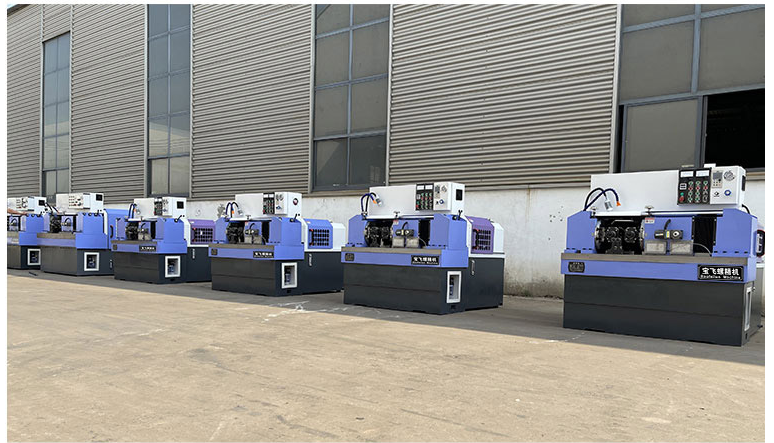
-
 Afrikaans
Afrikaans -
 Albanian
Albanian -
 Amharic
Amharic -
 Arabic
Arabic -
 Armenian
Armenian -
 Azerbaijani
Azerbaijani -
 Basque
Basque -
 Belarusian
Belarusian -
 Bengali
Bengali -
 Bosnian
Bosnian -
 Bulgarian
Bulgarian -
 Catalan
Catalan -
 Cebuano
Cebuano -
 Corsican
Corsican -
 Croatian
Croatian -
 Czech
Czech -
 Danish
Danish -
 Dutch
Dutch -
 English
English -
 Esperanto
Esperanto -
 Estonian
Estonian -
 Finnish
Finnish -
 French
French -
 Frisian
Frisian -
 Galician
Galician -
 Georgian
Georgian -
 German
German -
 Greek
Greek -
 Gujarati
Gujarati -
 Haitian Creole
Haitian Creole -
 hausa
hausa -
 hawaiian
hawaiian -
 Hebrew
Hebrew -
 Hindi
Hindi -
 Miao
Miao -
 Hungarian
Hungarian -
 Icelandic
Icelandic -
 igbo
igbo -
 Indonesian
Indonesian -
 irish
irish -
 Italian
Italian -
 Japanese
Japanese -
 Javanese
Javanese -
 Kannada
Kannada -
 kazakh
kazakh -
 Khmer
Khmer -
 Rwandese
Rwandese -
 Korean
Korean -
 Kurdish
Kurdish -
 Kyrgyz
Kyrgyz -
 Lao
Lao -
 Latin
Latin -
 Latvian
Latvian -
 Lithuanian
Lithuanian -
 Luxembourgish
Luxembourgish -
 Macedonian
Macedonian -
 Malgashi
Malgashi -
 Malay
Malay -
 Malayalam
Malayalam -
 Maltese
Maltese -
 Maori
Maori -
 Marathi
Marathi -
 Mongolian
Mongolian -
 Myanmar
Myanmar -
 Nepali
Nepali -
 Norwegian
Norwegian -
 Norwegian
Norwegian -
 Occitan
Occitan -
 Pashto
Pashto -
 Persian
Persian -
 Polish
Polish -
 Portuguese
Portuguese -
 Punjabi
Punjabi -
 Romanian
Romanian -
 Russian
Russian -
 Samoan
Samoan -
 Scottish Gaelic
Scottish Gaelic -
 Serbian
Serbian -
 Sesotho
Sesotho -
 Shona
Shona -
 Sindhi
Sindhi -
 Sinhala
Sinhala -
 Slovak
Slovak -
 Slovenian
Slovenian -
 Somali
Somali -
 Spanish
Spanish -
 Sundanese
Sundanese -
 Swahili
Swahili -
 Swedish
Swedish -
 Tagalog
Tagalog -
 Tajik
Tajik -
 Tamil
Tamil -
 Tatar
Tatar -
 Telugu
Telugu -
 Thai
Thai -
 Turkish
Turkish -
 Turkmen
Turkmen -
 Ukrainian
Ukrainian -
 Urdu
Urdu -
 Uighur
Uighur -
 Uzbek
Uzbek -
 Vietnamese
Vietnamese -
 Welsh
Welsh -
 Bantu
Bantu -
 Yiddish
Yiddish -
 Yoruba
Yoruba -
 Zulu
Zulu
CNC Thread Rolling Machines for Precision Manufacturing and Enhanced Productivity
Understanding CNC Thread Rolling Machines A Comprehensive Overview
In the modern manufacturing landscape, precision and efficiency are paramount. Among the various technologies employed to achieve these goals, CNC (Computer Numerical Control) thread rolling machines have emerged as critical tools in the production of threaded components. These machines utilize advanced techniques to create high-quality threads with minimal material waste, making them indispensable in industries ranging from automotive to aerospace.
What is a CNC Thread Rolling Machine?
A CNC thread rolling machine is a specialized piece of equipment designed to form threads on metal workpieces through a process known as thread rolling. Unlike traditional cutting methods that remove material to create threads, thread rolling is a cold-forming process where the material is deformed to shape the threads. This method is not only more efficient but also produces stronger threads due to the work-hardening effect of the process.
How Does it Work?
The operation of a CNC thread rolling machine involves several key components. At its core, the machine is equipped with rollers that move in a synchronized manner to press against the workpiece. The material is typically fed into the machine, and as the rollers rotate, they apply pressure to shape the workpiece into the desired thread configuration.
CNC technology enhances this process by allowing precise control over the rolling parameters such as speed, pressure, and feed rate. The use of computer software enables operators to input specific thread designs and dimensions, ensuring that each piece produced meets rigorous quality standards. This level of precision reduces the level of human error and increases overall productivity.
Advantages of Using CNC Thread Rolling Machines
1. Increased Strength and Durability One of the primary benefits of rolling threads as opposed to cutting them is that the rolling process increases the density of the material at the thread roots, resulting in stronger and more durable products. This is especially important in high-pressure and high-stress applications.
cnc thread rolling machine product

2. Material Efficiency Thread rolling produces minimal waste since it does not cut away material but instead reshapes it. This not only makes the process more environmentally friendly but also more cost-effective for manufacturers.
3. Higher Production Rates CNC machines can operate continuously with minimal supervision, allowing manufacturers to increase their output without compromising quality. The automation provided by CNC technology means that once a program is set, the machine can produce thousands of identical parts in a fraction of the time required for traditional methods.
4. Versatility CNC thread rolling machines can be used for a variety of materials, including various grades of steel, aluminum, brass, and even some plastics. This versatility makes them suitable for a wide array of applications across different industries.
5. Reduced Tooling Costs Unlike cutting tools that can wear out quickly, the rollers used in thread rolling machines generally last much longer, reducing the need for frequent replacements and lowering overall tooling expenses.
Applications Across Industries
CNC thread rolling machines play a vital role in numerous sectors. In the automotive industry, they are used to manufacture bolts, nuts, and other critical components that require high tensile strength. The aerospace sector, too, relies on these machines for producing fasteners and connectors that must meet strict safety standards. Additionally, industries such as construction, electronics, and plumbing utilize rolled threads in various applications, further showcasing the versatility and importance of this technology.
Conclusion
As manufacturers strive to meet the demands of an ever-evolving market, CNC thread rolling machines represent a key technology in achieving efficiency, precision, and cost-effectiveness. With their ability to produce high-strength threaded components and reduce waste, these machines are set to play an even larger role in the future of manufacturing. As advancements continue in CNC technology, the potential for enhanced capabilities in thread rolling will undoubtedly revolutionize processes across multiple industries, ensuring that manufacturers remain competitive in a global market.
